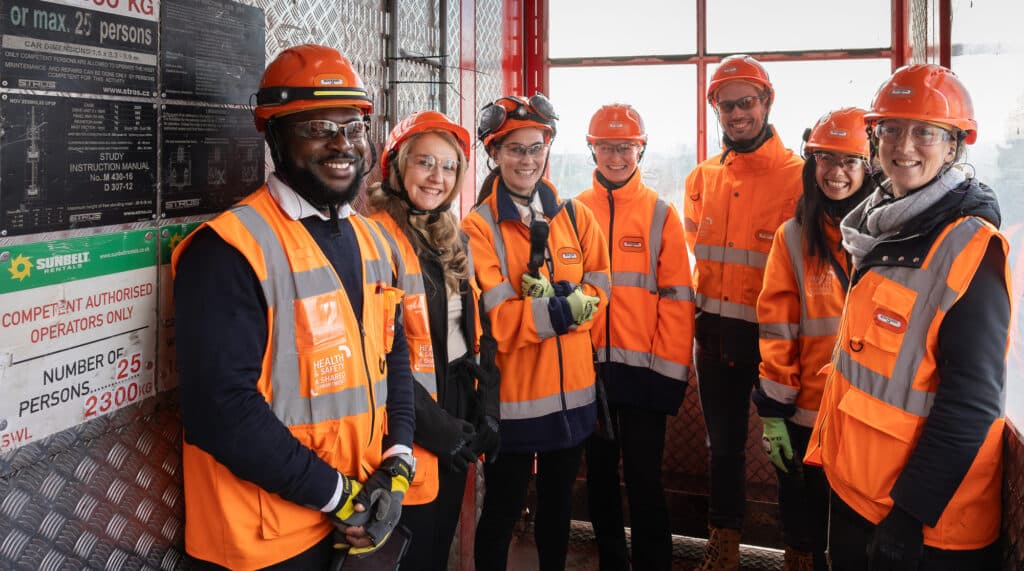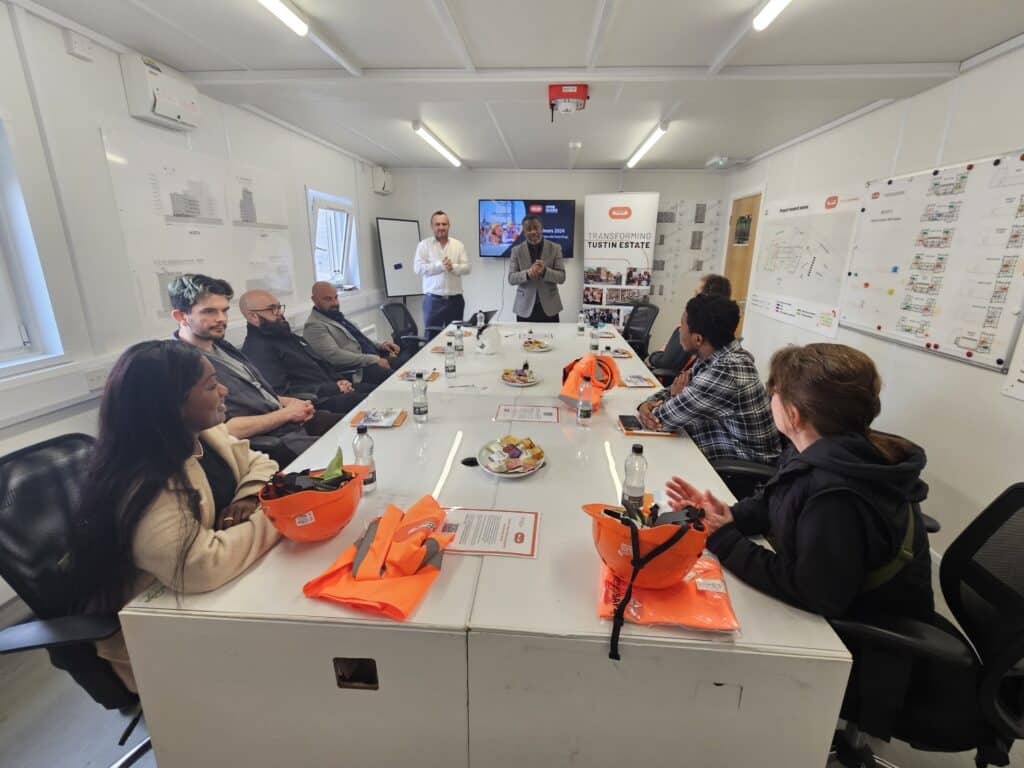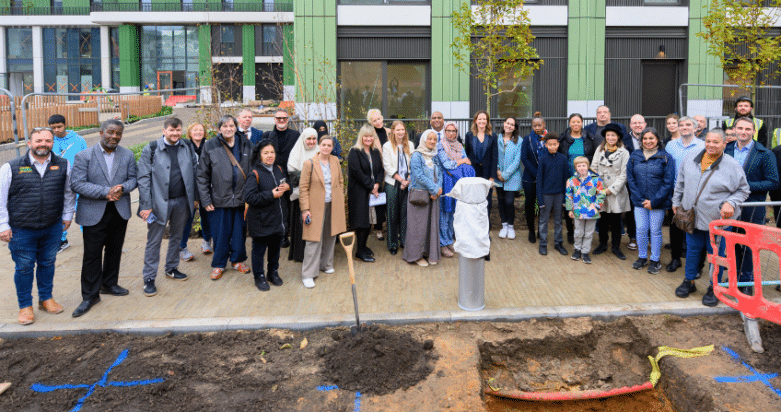
Bridging the Gap: Tackling the Skills Shortage Crisis in Construction
Author
Chris Johnson
Business Development Manager
The construction industry is one of the essential drivers for economic growth and development across the globe, yet it is facing an alarming crisis: a severe shortage of skilled workers. As Bouygues UK’s Business Development Manager Chris Johnson, witnessed during a panel discussion on the skills shortage at the Chartered Institute of Housing’s Annual Housing Brighton Conference, the magnitude of this issue demands immediate action. Here, Chris delves into the current state of the skills shortage, its underlying causes, and the strategic measures necessary to bridge this gap and ensure the construction industry’s future.
A crucial need for a thriving construction industry
The construction industry is pivotal to the UK economy, employing approximately 2.15 million people across the nation and providing critical infrastructure and housing developments. However, a shortage of skilled workers is threatening the industry’s stability and future growth. Construction companies and recruitment agencies are grappling with a shrinking pool of talent, making it difficult to meet the demand for workers needed on construction sites.
Alarming statistics highlight the crisis

The UK Trade Skills Index 2023 indicates a pressing need for 937,000 new recruits in the construction and trades industry over the next decade. Despite this, the sector has experienced a significant loss of 300,000 construction workers in the past five years. As a result of this and the complex economic climate, the government is projected to miss its target of building 300,000 new homes annually by a staggering 40%.
Higher demands for decarbonisation efforts and new builds necessitate additional skills that the industry simply can’t seem to source, and with 35% of the current workforce being over the age of 50, there is an impending wave of retirements which will only exacerbate the issue.
The stark contrast between the annual demand for 33,000 new bricklayers and the 1,600 being trained each year further underscores the severity of the shortage.
Root causes of the skills shortage
There are several factors contributing to the skills shortage, including gaps in education and training, changing industry demands and the challenge of enticing school leavers.
Gaps in education and training
The decline in people deciding to embark on apprenticeships significantly contributes to the skills shortage. In 2021, only 713,000 people were registered as apprentices, the lowest since 2010, with nearly half failing to complete their courses. A lack of interest among young people exacerbates this issue, as research carried out by data specialist, Savanta ComRes, indicated that only 5% of students actively considered careers in construction.
Enticing new talent
Attracting young talent to the construction industry remains a challenge. Many of the next generation are not aware of the plethora of opportunities available to them within the industry. More needs to be done to highlight the diverse opportunities the sector offers, providing clear career paths and actively promoting the sector to students.


The lack of women in construction also exacerbates the skills shortage as the industry is missing out on an enormous pool of potential talent. Women are still too often prone to avoiding considering a career in construction due to systemic stereotypes persisting coupled with a lack of representation which can lead to feelings of otherness in the workplace. The industry must do more to promote inclusivity, provide mentorship, and challenge stereotypes to attract more women into construction.
Bridging the skills gap: Bouygues UK’s Approach
The skills shortage is a complex dilemma and addressing it requires a multifaceted approach. At Bouygues UK, we are proud to be implementing several strategies through which we are helping to bridge the gap and ensure a steady pipeline of skilled workers.

Recruiting and training young talent
We invest in recruiting and training young talent through graduate schemes, apprenticeship programmes, and partnerships with educational institutions. Once onboarded, we offer our next generation of employees comprehensive training and development opportunities, supporting them throughout their journey with us to enhance their long-term career prospects within the industry.
Education and outreach
Our commitment to education and outreach is demonstrated by our Social Value Advisors, stationed at each of our projects. They run sessions and workshops, often in collaboration organisations like Women into Construction (WiC) to inspire the next generation of construction workers. Partnerships with The Skills Centre, Youth Build, and local colleges further support our education and outreach initiatives.

Upskilling and retaining workers
Retaining skilled workers is crucial for sustaining the construction industry’s growth and productivity. Bouygues UK prioritises continuous professional development, offering structured training programmes and on-the-job learning experiences that help employees stay on top of the latest industry practices and technologies. By working closely with our supply chain, we upskill not only the workers we directly employ, but also those within our supply chain ensuring that they are well-equipped to meet current and future demands.

Local labour agreements
Local labour agreements ensure that the workforce mirrors the local community, promoting job opportunities for local people. Bouygues UK focuses on tapping into the local talent pool, not only addressing the immediate need for skilled workers but also building a workforce that reflects the community’s diversity and strengths. This approach is one that incites pride among local workers, enhancing job satisfaction and retention rates. Furthermore, it helps bridge the skills gap by providing targeted training and employment opportunities to underrepresented groups, ensuring a more inclusive industry.
Bouygues UK is proactively addressing the construction sector’s skills shortage. However, industry-wide innovation and adaptation are essential to develop sustainable solutions. Only by bridging the skills gap can the construction industry continue to drive economic growth and build the infrastructure vital for a prosperous society.










